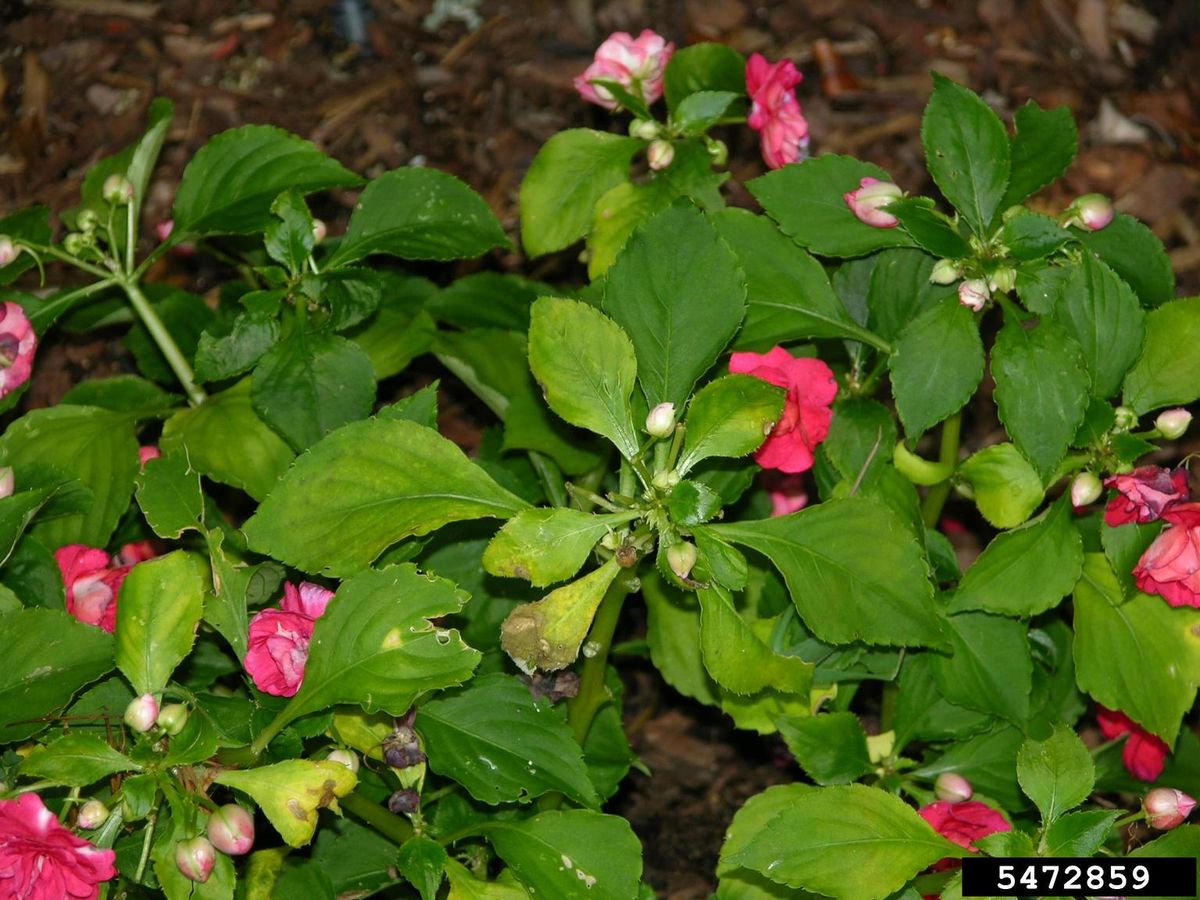Restore your Impatiens glow by uncovering and fixing the hidden reasons behind their yellow leaves.
Seeing those vibrant yellow leaves on your once thriving impatiens plants can be disheartening. But don’t despair! With a little detective work, you can get to the bottom of what’s causing the yellowing and get your impatiens back to their beautiful selves.
What Causes Yellow Leaves on Impatiens?
There are a few key culprits that could be behind your impatiens’ yellow leaves:
Overwatering – The #1 reason for yellow leaves on impatiens is too much moisture. Impatiens like evenly moist soil, but not soggy or waterlogged conditions Overwatering suffocates the roots and leads to root rot Adjust your watering schedule to allow the soil to partially dry out between waterings.
Underwatering – On the flip side, not watering enough can also cause yellowing as the plant becomes stressed and starts to wilt. Make sure to check soil moisture before watering.
Nutrient Deficiencies – Lack of key nutrients like nitrogen, iron, and magnesium can cause yellowing. Use a balanced fertilizer to give impatiens the nutrients they need.
Pests – Spider mites, aphids and other sucking insects can drain nutrients from the plant, leading to yellowing. Check closely for signs of pests.
Diseases – Fungal diseases like downy mildew, botrytis blight, and verticillium wilt can also lead to yellowing. Prevent spread by removing affected parts promptly.
Sun Exposure – Too much hot sun can scorch impatiens leaves, turning them yellow. Site impatiens in part shade locations.
Cold Damage – Chilling injury from cold snaps can also yellow the leaves. Protect plants from frost.
Fixing Yellow Leaves on Impatiens
Luckily, with some adjustments you can nurse your impatiens back to health when yellow leaves strike. Here are some tips:
-
Check soil moisture – Use your finger to test moisture before watering. Let soil dry out slightly between waterings.
-
Improve drainage – Add compost or perlite to soil to prevent waterlogging.
-
Fertilize – Apply a balanced liquid fertilizer every 2-4 weeks during growing season.
-
Inspect for pests – Look closely under leaves for signs of mites, aphids, or other pests. Remove by hand or use insecticidal soap spray.
-
Prune affected leaves – Remove yellow leaves promptly to prevent disease spread. Disinfect pruners between cuts.
-
Provide shade – Yellow leaves from too much sun will recover if given afternoon shade. Filter sun with shade cloth or situate under tree canopy.
-
Protect from cold – If yellowing is due to cold damage, cover plants or move containers to a sheltered spot.
-
Treat fungal infections – Apply fungicides labeled for impatiens diseases if fungal problems persist.
Preventing Future Yellowing
The best offense is a good defense when it comes to impatiens care. Here are some proactive ways to avoid yellow leaves:
-
Water thoroughly when soil dries out 1-2″ deep. Avoid excessive moisture.
-
Test drainage by watering heavily – soil should drain freely.
-
Apply a balanced fertilizer every 2-4 weeks during active growth.
-
Scan for pests like spider mites weekly. Remove any found immediately.
-
Space plants appropriately to allow air circulation and prevent fungal issues.
-
Prune strategically to open up interior to light and air flow.
-
Monitor for disease symptoms and remove affected parts promptly.
-
Place in part to full shade locations protected from hot afternoon sun.
-
Shelter from cold winds and frosts which can shock tender leaves.
Impatiens Yellow Leaves Happen – Don’t Despair!
Even experienced gardeners deal with impatiens yellow leaves from time to time due to the plant’s sensitivity. But a little TLC and prompt troubleshooting when you spot yellowing can get your impatiens thriving again. With proper care, these colorful staples will continue brightening your garden all season long!
Integrated Pest Management (IPM)
Use IPM strategies to manage pests and diseases holistically. Its like being a plant psychologist, understanding and treating the root of the problem.
Too Much Water, Too Little Air
Overwatering your Impatiens is like throwing a pool party without a pool – its just a soggy mess. The soil should feel like a well-wrung sponge, not a swamp. If it’s too wet, the roots aren’t just drowned; they’re also suffocating, which makes the soil less airy. Don’t forget that roots need to breathe too! Change how much you water based on the season—less when it’s cool, more when the plant is growing quickly. Aim for moist, not drenched, and youll keep those roots happy and healthy.
Impatiens – How to grow and care for it
FAQ
Do yellow leaves always mean overwatering?
How do you fix yellow leaves on plants?
How often should I water my impatiens?
What deficiency causes plant leaves to turn yellow?
- The Ultimate Guide to Growing Strawberries in Raised Beds - August 8, 2025
- No-Dig Garden Beds: The Easiest Way to Grow a Beautiful Garden - August 6, 2025
- How to Protect and Preserve Wood for Raised Garden Beds - August 6, 2025

